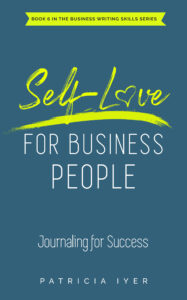The Long-term Benefits of Journaling

The long-term benefits of the journaling process require patience. Whether you call it the unconscious mind, inner wisdom, or intuition, you may have ignored that part of yourself for a long time. It may be sulking.
Rebuilding the connection is like building a bridge. You’re on one side, and all the valuable material you want is on the other side. You were born with that bridge standing, but you’ve allowed it to crumble over time. By journaling, you rebuild it, little by little.
I believe that the unconscious mind does its share of rebuilding the bridge. It wants that connection. Giving you information about yourself is what it was designed to do, and it intends to fulfill that.
Long-term Benefits of Journaling
Notice when you get nicer to yourself
Regularly keeping a journal can help you to acknowledge negative emotions without judgment. They are no longer churning inside you but out on the page, where they can’t do nearly as much harm. They’re just words, and when you can recognize that, your level of self-judgment goes way down, and your self-love increases.
This practice is one of the ways you clear out mental and emotional garbage, which further empties a passage to the unconscious. In terms of the bridge-building analogy, you clear out the rubble.
Recognize “ah-ha” moments
What James Joyce called “epiphanies” are moments of connection and insight. They may not occur when you’re writing your pages. They could happen when you’re vacuuming, driving, or at any random moment.
You might be thinking about someone you have difficulty with and realize that, even though his superficial characteristics are very unlike your father’s, he reminds you of him. Your problem is that you want him to appreciate you the way your father never did.
Here’s where your phone app or small notebook that you carry with you can come in handy. Write down or record this insight. The next time you write your journal pages—or you could write a unique entry—go into this more deeply.
This process will not only deepen your insight but will help to build your bridge. The unconscious will feel recognized and will helpfully continue to provide epiphanies.
Acknowledge that you’re getting good at it
Because you will, the day will come when you look forward to journaling. Like any adventurer, you’ll seek the excitement of exploration and discovery. And that’s when the treasures start to reveal themselves.
You may find writing emails, reports for attorneys, and speeches easier. That’s because you’re no longer caught in the belief trap of doubt or lack of confidence: “I really can’t write,” “That wasn’t what I meant to say,” “He’s going to misinterpret this,” r “The audience is going to fall asleep.”
Self-judgment is no longer casting a shadow over every word you write. You can now think and write clearly. And, what may have greater importance, you’ve begun to develop a writing style that expresses who you are through journaling.
Your self-image feels honest and authentic—and that always feels good. The more you are in integrity with the person you want to be, the more you experience self-love and empowerment.
Learn to harvest your journal entries
You can get a lot of material for articles or blogs from your journals. There are a couple of ways to do this.
In the heat of writing down a grievance or a discovery, you are often too focused on making that connection to the unconscious to stepping outside of that process—nor would it be constructive to do so.
When you’ve finished writing, you may decide that the insights that came to you could develop into an article or story within an article or speech.
In that event, flag the entry like this:
**DEVELOP**
When you re-read weekly (or sometimes monthly) your entries, copy the flagged pages and put them in a separate file—or, once you have a lot, categorize files in a folder.
At other times, the importance of an entry doesn’t strike you at the time of writing, but it does when you do the re-reading. Then follow the same process.
I do have one warning regarding this process. When writing an entry, you might think, “This would make a good blog entry (or newsletter article). That insight tempts you to do some good (meaning formal) writing, which implies self-editing, correcting typos, and other self-monitoring forms. This interruption can disrupt or freeze the creative flow. At that point, step back and say, “Later for you.”
The long-term benefits of Journaling
I began this blog counseling patience and will end it with the same message. You have a natural, innate connection to your inner wisdom. It is, as the popular phrase goes, “hard-wired.” You need only to get out of your way to restore the connection. Journaling helps you do that.
Releasing the hold of habitual thinking that has limited or blocked your creativity will help you whether or not you ever write a book. You’ll find it easier to develop creative solutions to work or home issues. You’ll be able to plan with confidence for the future.
Use the daily pages to make friends with what goes on in your mind. Once familiar with yourself, you’ll recognize that your thoughts are interesting. You’ll build a desire to share them.
 When you ignite that desire, you’ll look forward to writing. You’ll want to write more.
When you ignite that desire, you’ll look forward to writing. You’ll want to write more.
You will become a better writer. And that’s how a good writer is born.
My book, Self-Love for Business People: Journaling for Success, will take you deep into the journaling process. Grab your copy today and be ready to take notes.

Pat Iyer is president of The Pat Iyer Group, which develops resources to assist LNCs in obtaining more clients, making more money, and achieving their business goals and dreams.
Pat’s related websites include the continuing education provided on LNCEU.com, the podcasts broadcast at podcast.legalnursebusiness.com, and writing tips supplied at patiyer.com.
Get all of Pat’s content in one place by downloading the mobile app, Expert Edu at www.legalnursebusiness.com/expertedu. Watch videos, listen to podcasts, read blogs, watch online courses and training, and more.
